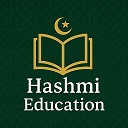Hazrat Ayesha razi allah tala anhu, the cherished woman of the Prophet Muhammad ﷺ, is one of the most luminous numbers in Islamic history — an personification of intelligence, piety, and unwavering devotion.

As a Hanafi scholar, I find her part in shaping the intellectual heritage of Islam nothing short of extraordinary. Not only did she live in the company of the topmost man to ever walk this earth, but she absorbed his training with similar clarity and transmitted them with similar perfection that she came one of the most fat narrators of hadith in our entire tradition.
Ayesha’s Contribution to Hadith
She recited over 2,200 authentic hadiths — covering everything from the Prophet’s diurnal routine to rulings on chastity, family matters, and ethics. Her stories aren’t limited to abstract legal knowledge; they’re windows into the Prophet’s ﷺ life, heart, and character.
I still flash back my first time studying her stories in our hadith class during my early times at the madrasa. One of her hadiths struck me deeply — when she said, “The Prophet ﷺ would flash back Allah at all times.” (Sahih Muslim)
This was not just a description of his conduct; it was a memorial of how seamlessly deification was woven into his life and through her, into ours.
Intellectual Brilliance and Fiqh
Hazrat Ayesha’s razi allah tala anhu sharp intellect was matched by her intrepid clarity. The companions frequently consulted her in matters of fiqh and theology. She formerly corrected a misreading about ghusl and fasting during Ramadan — a position that indeed elderly companions had erred on.
When a man claimed that if a person woke up in a state of janabah (major contamination), his fast was invalid, Ayesha razi allah tala anhu and Umm Salamah razi allah tala anhu incontinently responded, “The Messenger of Allah ﷺ would wake up in that state and still presto.” (Bukhari)
As a pupil of Hanafi usul (principles of justice), I appreciate the nuance and courage it takes to save the authenticity of the Sunnah, indeed when it involves correcting others.
Respect from Scholars
It’s for reasons like this that Imam Abu Hanifa himself, the great author of our madhhab, had the utmost respect for Ayesha razi allah tala anhu, formerly saying, “A quarter of the rulings of Shari’ah are grounded on what was recited from her.”
She wasn’t simply the Prophet’s woman — she was a magistrate, a scholar, and a source of the Shari’ah. Her deep knowledge of Qur’anic interpretation, fiqh, and hadith demonstrates how Islam doesn’t circumscribe scholarly excellence by gender — it uplifts whoever is sincere and able.
The Incident of Ifk
And yet, her life wasn’t without difficulty. The incident of Ifk, the libel falsely leveled against her, is one of the most heart-wrenching stories in Seerah.
She was indicted without substantiation, lowered by rumors, and indeed the Prophet ﷺ, in his anguish, withheld judgment for a while. But Hazrat Ayesha razi allah tala anhu, despite the internal and emotional risk, remained patient.
Ultimately, Allah revealed verses in Surah Noor (24:11–20) to declare her innocence, saying:
“Indeed, those who came with the libel are a group among you. Don’t suppose it bad for you; rather, it’s good for you.”
These verses don’t just vindicate her — they recognize her ever.
When I first read those verses as a teenager, I was overwhelmed. I realized that indeed the purest hearts can be blackened but Allah defends His retainers in the most important ways.
Love and Character
Her personality was as vibrant as her education. She was intelligent, eloquent, and indeed sportful.
Once she asked the Prophet ﷺ, “How is your love for me?” He replied, “Like the knot of a rope.” She’d ask latterly, “How is the knot?” and he’d say, “As tight as ever.” (Shamā’il al-Tirmidhi)
These moments show us that their love was full of quality, collective respect, and humanity.
In my marriage comforting sessions as an imam, I frequently quote this hadith — not to be romantic, but to show that emotional protestation is part of the Sunnah.
She wasn’t hysterical to question, to challenge hypercritically, to express herself — and the Prophet ﷺ always ate that.
Their marriage was a spiritual fellowship, a model for healthy, loving connections embedded in communication and trust.
A Teacher to the Ummah
Indeed after the Prophet’s ﷺ end, Hazrat Ayesharazi allah tala anhu came a schoolteacher to the Ummah. She tutored elderly companions, corrected misconstructions, and guided unborn scholars.
She lived nearly 50 times after the Prophet ﷺ, and she spent that time not in anguish but in service. Her home came the first “seminary” of Islamic knowledge for numerous scholars.
Among them were Urwah ibn Zubayr and Masruq, who saved thousands of her perceptivity.
Once Masruq said, “I’ve seen the elderly companions of the Prophet ﷺ asking Ayesha razi allah tala anhu about the scores of religion.”
Her memory, understanding, and analysis were admired indeed by the most seasoned of scholars.
As a Hanafi, this reminds me of the principle that verity isn’t bound by gender or age — it is bound by knowledge, taqwa, and sincerity.
Final Reflections
I frequently suppose if Ayesha razi allah tala anhu were alive moment, how would we treat her? Would we hear to her education? Would we admire her voice? Or would we silence her because she’s a woman?
These are uncomfortable questions, but necessary bones.
She was a faqihah, a muhadithah, a schoolteacher, a woman, a leader, and a patient menial of Allah. Her life was complex and noble — not a flat character in history, but a vibrant force in the conformation of Islam as we exercise it moment.
To study her is to study light. And to love her is to appreciate the heritage she gave to every pupil of knowledge — boy or lady.
